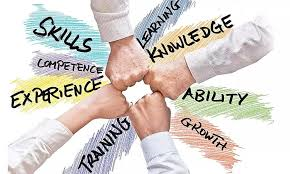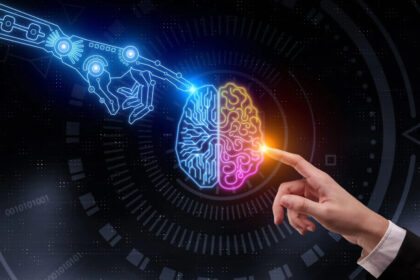Hi readers!
Have you heard the common idiom: Lies have no legs to stand?
but have probably never realized the price which everyone in our society is paying today.
The impact of lies is amplified when they are used by powerful individuals, like politicians or influential figures, as these lies can significantly influence public opinion, policy, and even international relations (we have experienced the worst of all this)
The concept of “lies” can be explored through the Quranic teachings and the psychological perspectives. The Holy Quran condemn lying and consider it the mother of all evils, while psychological studies examine the motives and characteristics of pathological and compulsive liars.
Pathological lying can be a symptom of antisocial or narcissistic (egotistic) personality disorder, commonly known as pseudologia fantastica which is a chronic behavior characterized by the habitual or compulsive tendency to lie.
Pathological liars are usually considered manipulative, selfish, and cunning (look around and you can very well imagine who these people are and what they have done and are continuously doing to our society). They lie non-stop to get their way and does so with little awareness.
A compulsive liar is a habitual liar: a tendency which can be linked to deeper emotional or behavioral issues like anxiety, low self-esteem, or stress. Compulsive liars bend the truth about everything because lying is very easy while telling the truth is very uncomfortable for them.
The most common liars are Natural liars: the people who can lie easily with great skill and success. They don’t believe their own lies, they’re just good at lying.
Lying can have various negative consequences that can affect relationships, mental health, erodes trust, creates stress, damage one’s confidence and reputation, and create problems as it can result in cognitive depletion of mental resources used for self-control and decision-making. This can lead to “cognitive fatigue” where individuals feel difficulty in making choices, resisting temptations, or maintaining focus.
This phenomenon: known as “ego depletion,” suggests that self-control and decision-making require mental energy which lying can deplete. People with cognitive depletion are not seen as good people as their trust is generally eroded in society.
The reasons why people lie are of three types. Lying for:
- compassion
- material gain, and
- maintaining a positive self-impression.
Lying for compassion
When liars lie, they privilege compassion or sympathy over honesty as people lie more about their feelings than anything else. When people exhibits positive feelings about another person, they avoid hurting that person’s feelings. It is observed that people who tell prosocial lies and helpful behavior are often viewed as more trustworthy and more moral than people who tell harsh truths. Prosocial lies let people form larger social networks than they could otherwise maintain while lies not motivated by compassion limit the size of social networks. The negative side of this compassion is that people who are overly appreciated about their abilities start thinking that they can succeed in enterprises with projects that may have very low chances of success and therefore launch ill-advised ventures.
Our society has experienced the worst of this, which is one of the major causes of why we have reached where we are. Have a close look at our organizations and you will find the so-called experts sitting there who may know everything except the work for which they are hired. One of the reasons why these pseudo-experts are sitting there is their over-appreciation of the abilities of those who matter in that organization. Obviously, they are liked more compared to those who mind their business (this is my personal experience).
Lies motivated by desire for material gain
This is the most dangerous motivation of lying in our society : a behavior that has become a social norm (like bribery in our society) and set the precedent: “dishonesty as appropriate” (100% true for our society, isn’t it?). In some organizations people who lie out of desire for material gain are not judged strictly rather, they are rewarded for their deception while lowering the risk of termination.
Their willingness to lie becomes social currency coveted by those who stand to benefit from their dishonesty.
Lying motivates people to rationalize and justify their lies to themselves, so that they may continue to see themselves as good and when they rationalize their behavior, they start lying more because they have already found a way to justify dishonesty which can be escalated due to small initial lies difficult to notice and results into:
a slow erosion of ethics compared to abrupt moral degradation, and this is exactly what happened to our society.
Lying motivated for personal gain can force people to forget the rules intended to govern their behavior. These liars often present themselves as righteous by condemning others for the same types of deception that they themselves committed. This phenomenon is most common in our society:
Dear readers, look around and watch for people committing heinous crimes and blaming others for the same. Some of them are corrupt to the core but blame others for corruption, some are involved in most serous and questionable moral and financial crimes but blame others for destroying the fabric of society, some keeps blackmailing the mighty for financial returns and justify it for their title and there is no dearth of such pseudo righteous who are treating society like a demerit where dishonesty motivate the people to rationalize their lies.
Lying for positive self-impression is understanding and perception of deceivers about themselves encircling their beliefs, thoughts, feelings, values about their characteristics, abilities, and behaviors. It’s the mental picture they present about who they are?
There are people who lie to portray themselves positive and forward-looking entities. They can be successful as people often exaggerate their intelligence and abilities to satisfy their egos or to impress others. Such people often experience and remain under the influence of a “duper’s delight”
Duper’s delight refers to the feeling of pleasure or satisfaction experienced by a deceiver when deceiving someone else, which triggered by anticipating the challenge of deception, during the act of lying, or after successfully deceiving someone. It can be a combination of pride in one’s deception, pleasure in seeing the other person deceived, or even a feeling of relief after the lie is told, or when they feel they have gotten away with deception.
Lying to strengthen the ego is not cost-free. Liars, who lie to see themselves as high morals usually forget that their timely success is based on dishonesty which force them to make misguided risks about their future performance. The consequences of lying are, therefore, not as simple as they might look. Lies ruin trust and relationship build on ages of hard work. Look around and in our neighbour? What happened? The years long trust not only broken but crushed never to be repaired again. A big lesion for those who want to learn.
See you next week. Take care, Bye





